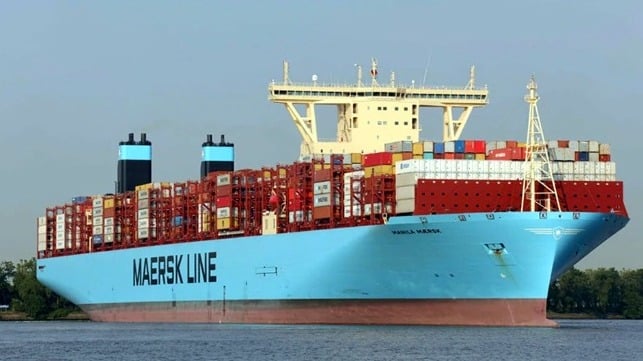Maersk Posts Remarkable Returns, But Holds Off on Shipbuilding

Maersk Group issued its annual report for 2020 on Wednesday, highlighting strong financial performance despite the challenges of the pandemic and new, conservative investment plans for greening its fleet.
Maersk produced an EBITDA of $8.2 billion for the year, with free cash flow doubling over 2019 levels to reach $4.6 billion. The strong performance was led by excellent results in its ocean and logistics segment, which saw a steep downturn early in the year followed by unprecedented demand and "exceptional higher freight rates" in the second half. In the fourth quarter, its Ocean segment (ocean freight) saw a 16 percent spike in revenue on a three-percent spike in volume, leading to a doubling of EBITDA and an impressive margin of nearly 27 percent.
"[Our bookings] are full . . . and we expect to remain full past Chinese New Year, which is quite extraordinary," said Maersk CEO Soren Skou in an investor call Wednesday. "The manufacturing sector in China is doing really [well] and so we expect this to run through the better part of the first quarter."
But unlike some of its competitors, Maersk does not plan to order a large number of new ships in response to this financial bonanza. Instead, it is using the extra money to pay down debt while it conducts its search for renewable alternative fuels - especially any alternatives that could be used to power its existing fleet, whether as drop-in fuels or as retrofit options.

that matters most
Get the latest maritime news delivered to your inbox daily.
"We're going to order ships to replace our fleet and to make sure that we can broadly maintain our market share, but nothing more than that . . . We are still working on figuring out what is the best fuel for us for the future. The alternatives that we are looking at are fuels like alcohols, ammonia and so on, which can be [used in] a combustion engine," said Skou.
Skou noted that methanol-powered diesel engines are already available on the market, and that ammonia-powered diesels are currently in development (at MAN and Wartsila). These engines are expected to be more expensive, but "it's not like we're seeing a huge mountain of capex coming our way" because of repower requirements to use methanol or ammonia, he said.
